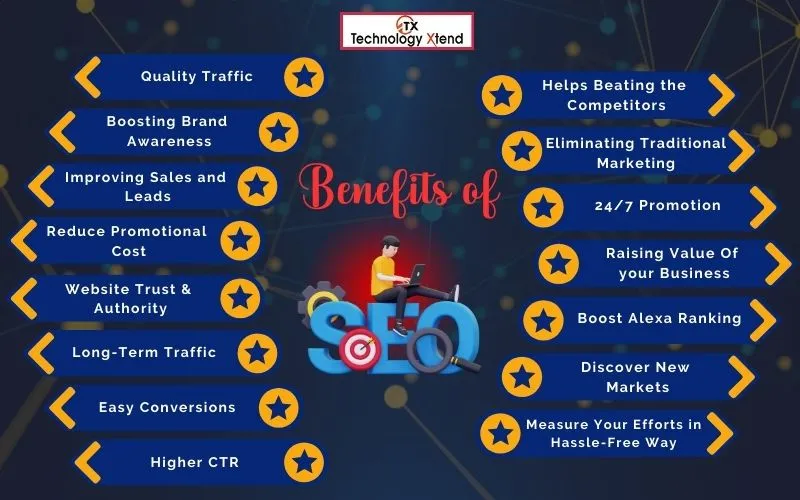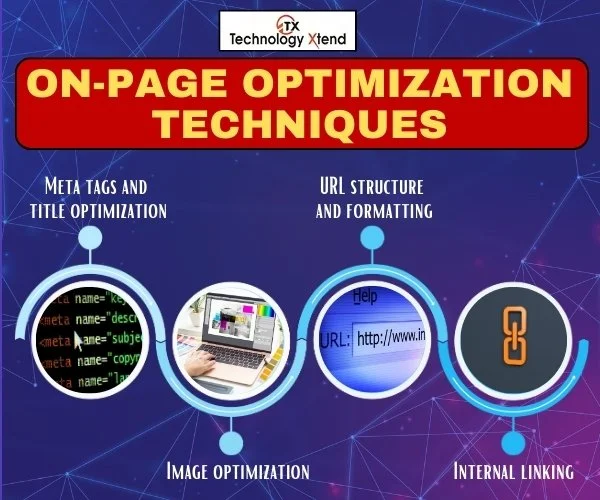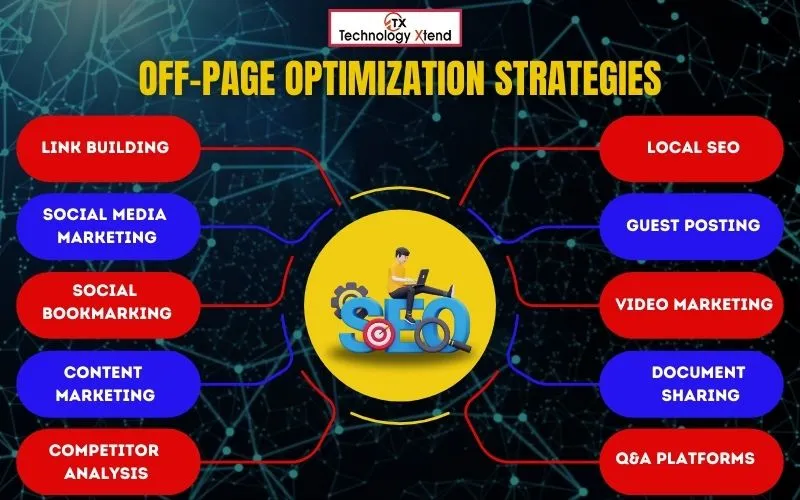
Technology XtendThe ABCs of SEO: How to Optimize Your Website for Search Engines
Table of Contents
Welcome to the world of SEO, where the alphabet takes on a whole new meaning. In this digital age, having a website is just the first step towards establishing an online presence. To truly stand out from the crowd and reach your target audience, you need to understand the ABCs of SEO - Search Engine Optimization. But fear not, as we are here to guide you through this intricate process. In this article, we will explore the fundamental principles of SEO and how you can optimize your website to rank higher in search engine results. From keyword research to on-page optimization and link building strategies, we will unravel the secrets behind boosting your online visibility and driving organic traffic to your site. So, grab a pen and paper, as we dive into the world of SEO and unlock the key to online success.
What is SEO?
Search Engine Optimization, or SEO, is the practice of optimizing your website to improve its visibility and ranking in search engine results. When someone searches for a specific keyword or phrase, search engines like Google, Bing, and Yahoo crawl through millions of web pages to provide the most relevant and valuable results. SEO aims to ensure that your website appears on the top of these search engine results pages (SERPs), driving more organic traffic and potential customers to your site.
SEO encompasses various techniques, including keyword research, on-page optimization, off-page optimization, and technical optimization. By implementing these strategies, you can enhance your website's relevance, authority, and user experience, making it easier for search engines to understand and rank your content.
Why is SEO important?
In today's competitive online landscape, having a well-optimized website is crucial for businesses and individuals alike. Here's why SEO is so important:
1. Increased visibility and organic traffic: When your website ranks higher in search results, it receives more visibility and attracts a larger number of organic visitors. This can lead to increased brand exposure, higher conversion rates, and ultimately, more revenue.

2. Targeted audience: By optimizing your website for specific keywords and phrases, you can attract a more targeted audience who is actively searching for the products or services you offer. This increases the chance of converting these visitors into loyal customers.
3. Credibility and trust: Websites that appear on the first page of search results are often perceived as more credible and trustworthy by users. By optimizing your website, you can build authority and establish a strong online presence in your industry.
4. Long-term results: Unlike paid advertising, which stops generating traffic once the budget runs out, SEO provides long-term results. By consistently optimizing your website, you can maintain and improve your search engine rankings over time.
Now that we understand the importance of SEO, let's take a closer look at how search engines work and what factors influence their rankings.
How search engines work
Search engines use complex algorithms to crawl, index, and rank web pages. Understanding how these algorithms work can help you optimize your website to meet their requirements and improve your visibility in search results.
1. Crawling: Search engines use bots, also known as spiders or crawlers, to discover and analyze web pages. These bots follow links from one page to another, collecting information about the content, structure, and other elements of each page.
2. Indexing: After crawling a web page, search engines store the information in their index, which is essentially a massive database of web pages. This allows search engines to quickly retrieve and display relevant results when someone performs a search query.
3. Ranking: When a user enters a search query, search engines use their algorithms to determine the most relevant and valuable results. These algorithms consider various factors, such as keyword relevance, website authority, user experience, and more.
To optimize your website for search engines, you need to focus on both on-page and off-page optimization techniques. Let's explore these in more detail.
On-page optimization techniques
On-page optimization refers to the process of optimizing individual web pages to improve their visibility and ranking in search engine results. By optimizing various on-page elements, you can make your content more appealing to both search engines and users. Here are some key on-page optimization techniques:
1. Keyword research and optimization: Keyword research is the foundation of SEO. It involves identifying the keywords and phrases that your target audience is using to search for your products or services. By incorporating these keywords into your content, meta tags, headings, and URLs, you can increase your website's relevance and improve its chances of ranking higher in search results.
2. Creating high-quality content for SEO: Content is king in the world of SEO. Search engines prioritize high-quality, unique, and relevant content that provides value to users. By creating informative and engaging content, you can attract more organic traffic and encourage other websites to link back to your site, thereby improving your website's authority and visibility.

3. Optimizing website structure and navigation: Search engines favor websites with a clear and intuitive structure that allows users and bots to navigate easily. Ensure that your website has a logical hierarchy, with well-organized categories, subcategories, and internal links. This not only improves user experience but also helps search engines understand the structure and content of your site.
By implementing these on-page optimization techniques, you can make your website more appealing and relevant to search engines, increasing its chances of ranking higher in search results. However, on-page optimization is just one piece of the SEO puzzle. To achieve optimal results, you also need to focus on off-page optimization strategies.
Off-page optimization strategies
Off-page optimization refers to the activities you undertake outside of your website to improve its visibility and authority. Off-page optimization primarily revolves around building high-quality backlinks, as well as establishing a strong online presence and reputation. Here are some key off-page optimization strategies:

1. Link building: Building high-quality backlinks from reputable and relevant websites is crucial for improving your website's authority and visibility. Focus on acquiring natural backlinks through guest blogging, influencer outreach, content promotion, and social media engagement. Avoid spammy tactics, such as buying links or participating in link schemes, as they can lead to penalties from search engines.
2. Social media marketing: Social media platforms are not only great for promoting your content and engaging with your audience but also for building brand awareness and generating natural backlinks. Share your content on social media, encourage social sharing and engagement, and participate in relevant industry discussions to expand your reach and attract more organic traffic.
3. Online reputation management: Your online reputation plays a significant role in SEO. Monitor and respond to customer reviews, actively engage with your audience on social media, and address any negative sentiment promptly. A positive online reputation can enhance your website's credibility and authority, leading to improved search engine rankings.
By implementing these off-page optimization strategies, you can enhance your website's authority and visibility in search engine results. However, SEO is an ongoing process that requires continuous monitoring and optimization. Let's explore how you can measure and track your SEO success.
Measuring and tracking SEO success
To evaluate the effectiveness of your SEO efforts, you need to measure and track key performance indicators (KPIs). Here are some essential metrics to monitor:
1. Keyword rankings: Track the rankings of your target keywords to see how your website is performing in search results. Tools like Google Search Console and third-party SEO software can help you monitor keyword rankings.
2. Organic traffic: Monitor the amount of organic traffic your website receives. Analyze the sources of traffic, the pages that attract the most visitors, and the keywords that drive the most traffic.
3. Conversion rate: Measure the percentage of visitors who take a desired action on your website, such as making a purchase, filling out a form, or subscribing to your newsletter. Analyze your conversion rate to identify areas for improvement and optimize your website accordingly
4. Backlink profile: Keep an eye on the quality and quantity of backlinks pointing to your website. Monitor changes in your backlink profile, identify any toxic or spammy links, and disavow them if necessary.
By regularly monitoring these metrics and making data-driven optimizations, you can enhance your SEO strategy and achieve better results over time. However, even with the best intentions, SEO mistakes can happen. Let's take a look at some common SEO mistakes to avoid.
Common SEO mistakes to avoid
While SEO can be complex, avoiding these common mistakes can help you stay on the right track and prevent any negative impact on your website's rankings:
1. Keyword stuffing: Stuffing your content with excessive keywords can lead to a poor user experience and could result in search engine penalties. Instead, focus on creating valuable and engaging content that naturally incorporates relevant keywords.
2. Ignoring mobile optimization: With the rise of mobile devices, optimizing your website for mobile users is essential. Ensure that your site is mobile-friendly, loads quickly, and provides a seamless user experience across different devices.
3. Neglecting technical SEO: Technical SEO refers to the optimization of non-content elements of your website, such as site speed, crawlability, and indexability. Ignoring technical SEO can hinder your website's performance and affect its visibility in search results.
4. Duplicating content: Using duplicate content across multiple pages or websites can lead to a loss of visibility in search results. Ensure that each page on your website has unique, valuable content that provides value to users.
By avoiding these common SEO mistakes, you can maximize your website's visibility and improve its chances of ranking higher in search engine results. To streamline your SEO efforts, let's explore some essential SEO tools and resources.
SEO tools and resources
The world of SEO is constantly evolving, and staying on top of the latest trends and tools is crucial for success. Here are some essential SEO tools and resources to help you optimize your website:
1. Keyword research tools: Tools like Google Keyword Planner, SEMrush, and Moz Keyword Explorer can help you identify relevant keywords and analyze their search volume, competition, and potential.
2. SEO plugins: If you're using a content management system (CMS) like WordPress, SEO plugins like Yoast SEO or All in One SEO Pack can simplify on-page optimization by providing real-time suggestions and analysis.
3. Analytics platforms: Google Analytics and Google Search Console are essential for monitoring your website's performance, tracking key metrics, and analyzing user behavior.
4. Link building tools: Tools like Ahrefs, Moz, and Majestic can help you analyze your backlink profile, identify opportunities for link building, and monitor your link-building efforts.
5. SEO blogs and forums: Stay up to date with the latest SEO trends, strategies, and best practices by following reputable SEO blogs and participating in industry forums. Some popular SEO blogs include Moz, Search Engine Land, and Search Engine Journal.
By leveraging these tools and resources, you can streamline your SEO efforts, gain valuable insights, and stay ahead of the competition.
Conclusion
Congratulations! You've reached the end of our journey through the world of SEO. We've explored the fundamental principles of SEO and how you can optimize your website for search engines. From keyword research to on-page optimization, link building strategies, and off-page optimization techniques, we've covered it all. Remember, SEO is an ongoing process that requires continuous monitoring, analysis, and optimization. By implementing the techniques and best practices outlined in this article, you can improve your website's visibility, attract more organic traffic, and unlock the key to online success. So, what are you waiting for? Start optimizing your website for search engines today and watch your online presence soar.
Related Articles












































